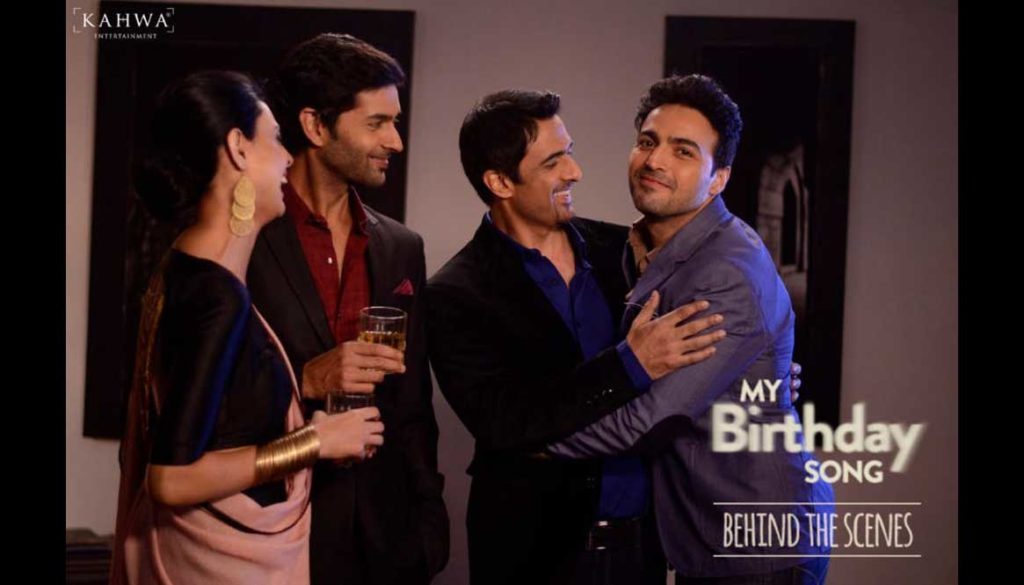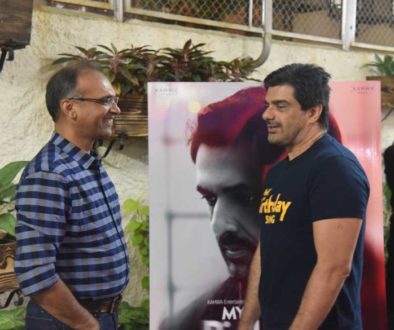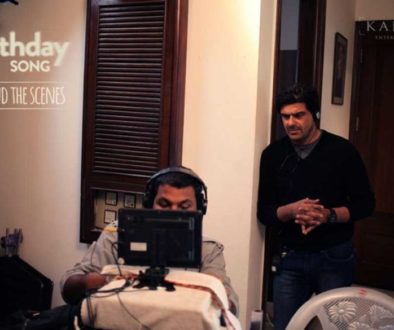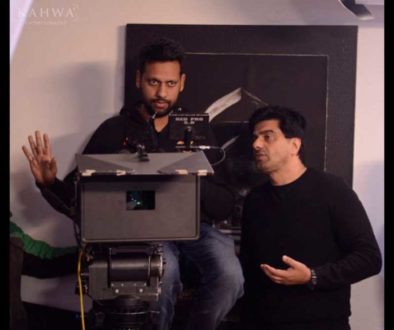One of the most refreshing films in Bollywood

By Murtaza Ali Khan
Samir Soni, who is probably best known for his role in the television serial Jassi Jaissi Koi Nahin, is making his directorial debut with My Birthday Song—a psychological thriller starring Sanjay Suri, Norah Fatehi, and Zenia Starr. The film revolves around a happily married man whose life turns upside down when a ghost from his past returns to haunt him on his 40th birthday. Now, Hindi cinema, unlike Hollywood, is not really known for making psychological thrillers. Having said that, we did have some good films over the last couple of decades such as Sangharsh (1999), Kaun (1999), Ek Hasina Thi (2004), Being Cyrus (2005), No Smoking (2007), and Karthik Calling Karthik (2010) that kept the genre alive. But we don’t have many good examples in the recent years. Among other things this downslide has to do with the poor box-office performance of such films. While most of these films have gone on to attain cult status, their immediate returns were below par. And so producers are often reluctant to take risks. Of course, there are other reasons as well.

There is no doubt whatsoever that making a good psychological thriller features amongst the most difficult feats as far as filmmaking is concerned. Right from the ideation stage the challenge is to come up with a story that can keep the viewer on the edge of the seat. Unlike a regular thriller wherein the focus is on creating adrenaline-pumping scenarios, in case of a psychological thriller there needs to be a greater emphasis on aspects that can impact the viewer emotionally as well as viscerally rather than intellectually. But that certainly doesn’t mean that the logic can be compromised for the sake of eliciting strong emotional and visceral responses. From the screenwriting point of view, the struggles and conflicts need to be more internal than external. And herein lies the biggest challenge, for it requires the filmmaker to provide the viewers with the access to the convoluted minds of the characters that inhabit the film’s universe. The filmmaker of course has a variety of cinematic tropes at his/her disposal to manifest his creative design. But despite all the technological advances that cinema has made in the recent years there is nothing that works better than the good old editing techniques: Montage and Decoupage classique.

While the latter deals with rules of temporal and spatial continuity as established in Hollywood by early American filmmakers like D.W. Griffith intended to achieve seamless transitions between shots so that the focus is on the how the overall story unfolds, the former is a technique made famous by Soviet filmmakers like Sergei Eisenstein wherein two or more shots are edited together to give rise to a new meaning with the idea of continuity taking a backseat. Now, Alfred Hitchcock, who is hailed as the undisputed master of suspense in cinema, had attained a mastery over these two editing techniques. Unlike filmmakers before him, Hitchcock would employ both these techniques together to devastating effect. Perhaps, the best example is his 1960 masterpiece Pyscho with its famous shower sequence unpinning Hitchcock’s unparalleled mastery over film editing. The scene’s pacy editing is achieved by splicing over 75 pieces of film in 45 seconds. In the scene a woman is brutally stabbed to death by a mysterious assailant while taking a shower but there isn’t an iota of nudity; also the knife never really is seen touching the woman’s body and yet we do witness a murder—one that only can be manifested cinematically.

Now, Samir Soni’s choice to begin his film direction career with a psychological thriller is certainly a daring one. What makes it even more interesting is the fact that he has also written and co-produced the film. Perhaps, no one else would have backed up a debutant filmmaker embarking on a journey to make a psychological thriller with an experimental narrative. As a matter of fact, My Birthday Song is nothing like anything seen before in Hindi cinema. Here is a film that employs Hitchcockian techniques to weave a Kafkaesque nightmare with surrealistic motifs that one would come across in works of David Lynch. But the novelty is not only limited to the narrative, for the camerawork, editing, and soundscape too have a certain avant-garde quality about them that we seldom get to see in contemporary Bollywood films. The USP of the film, however, is its element of suspense that keeps the viewer guessing at the edge of the seat until the very end. The film’s nonlinear narrative adds another layer to the overarching suspense that propels the plot.
 My Birthday Song can best be described as a heady concoction of the old and the new elements of thrill and suspense. While Hitchcock’s influence on Soni is quite obvious (he even makes a brief appearance in the film à la Hitchcock), he also seems to draw inspiration from various contemporary filmmakers including David Fincher (Gone Girl, Fight Club, Seven, Zodiac), Chan-wook Park (Oldboy, Stoker, Sympathy for Mr. Vengeance), Christopher Nolan (Memento, Insomnia, The Prestige), and Brad Anderson (The Machinist, Transsiberian). My Birthday Song employs the classical montage editing techniques to brilliant effect and despite the influences comes across as an original film. Sanjay Suri delivers a riveting performance that may go down as one of the very best of his two-decade-long career in Bollywood. He gets good support from the ravishing Canadian dancer Nora Fatehi and Australian beauty Zenia Starr. The film has its share of flaws and just like other films of its kind it requires the viewers to suspend their disbelief. Since most of the dialogue is in English the movie is not really intended for mass viewing. Nonetheless, My Birthday Song is one of the most refreshing films to have come out of Bollywood in recent times. Hopefully, it will encourage other filmmakers to try out new things in the days to come.
My Birthday Song can best be described as a heady concoction of the old and the new elements of thrill and suspense. While Hitchcock’s influence on Soni is quite obvious (he even makes a brief appearance in the film à la Hitchcock), he also seems to draw inspiration from various contemporary filmmakers including David Fincher (Gone Girl, Fight Club, Seven, Zodiac), Chan-wook Park (Oldboy, Stoker, Sympathy for Mr. Vengeance), Christopher Nolan (Memento, Insomnia, The Prestige), and Brad Anderson (The Machinist, Transsiberian). My Birthday Song employs the classical montage editing techniques to brilliant effect and despite the influences comes across as an original film. Sanjay Suri delivers a riveting performance that may go down as one of the very best of his two-decade-long career in Bollywood. He gets good support from the ravishing Canadian dancer Nora Fatehi and Australian beauty Zenia Starr. The film has its share of flaws and just like other films of its kind it requires the viewers to suspend their disbelief. Since most of the dialogue is in English the movie is not really intended for mass viewing. Nonetheless, My Birthday Song is one of the most refreshing films to have come out of Bollywood in recent times. Hopefully, it will encourage other filmmakers to try out new things in the days to come.
Rating: 7.5/10


